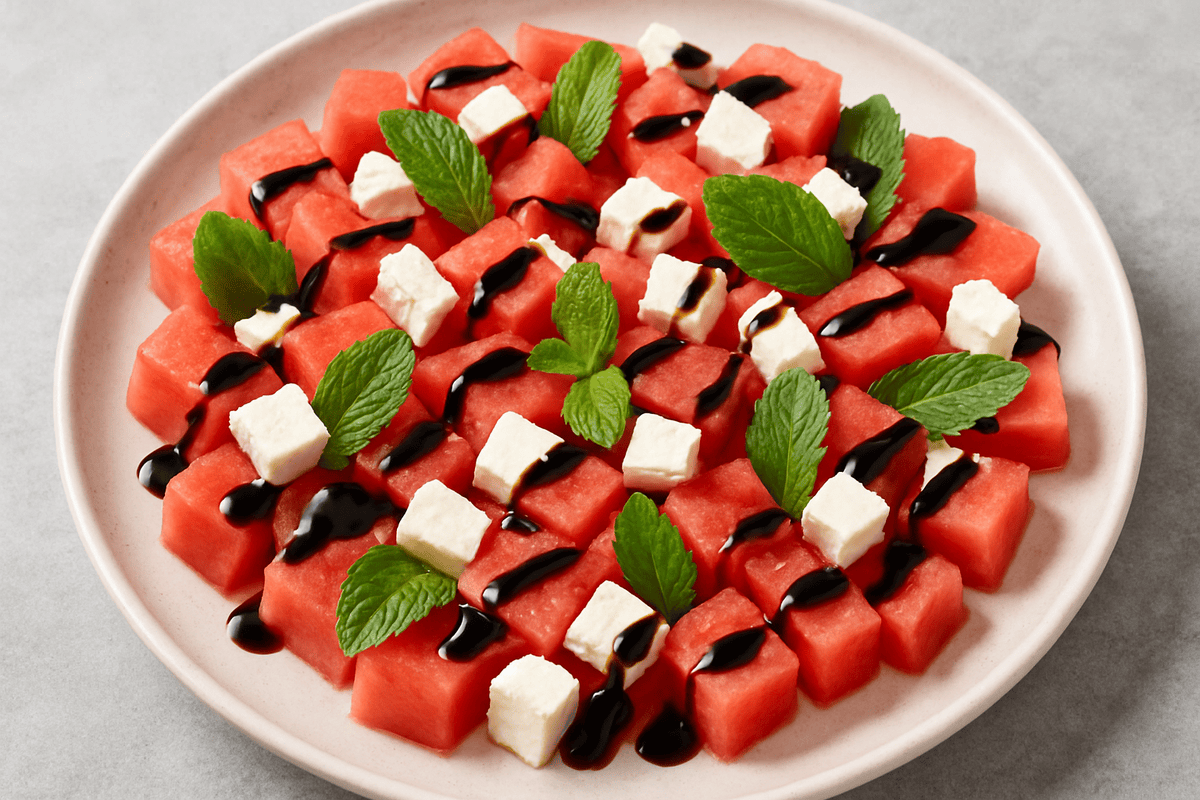For comfort, sexual health, and general intimate health, it’s essential to have the right amount of vaginal wetness. Hormones, hydration, and stress are all important components, but new research indicates that nutrition has a significant impact on vaginal lubrication. This article discusses six powerful foods that can help you stay hydrated by increasing blood flow, balancing hormones, and maintaining tissue moisture. Don’t use fake lubes; nature has tasty options. We’ll explain how each food works, why it works, and how to use it in your meals every day. These dietary tips can help keep your vagina naturally wet, whether you’re going through menopause, postpartum changes, or want to be more intimate. Let’s explore the tasty world of foods that make the vagina wetter in a healthy way.
The Science Behind Vaginal Wetness: How Food Influences Lubrication
Cervical fluid and transudation (a plasma-like fluid that leaks through vaginal walls when a woman is aroused) are the leading causes of vaginal wetness. Estrogen is the key hormone that keeps the vaginal tissue thick, elastic, and well-supplied with blood. When estrogen levels drop, as can occur after menopause or breastfeeding, dryness often follows. Some foods fight this by:
- Boosting Nitric Oxide: This relaxes blood arteries, which increases blood flow and transudation in the pelvis.
- Providing Phytoestrogens: These plant-based ingredients mimic estrogen and help maintain tissue health.
- Enhancing Hydration: Foods rich in water help maintain the body’s fluid balance.
- Delivering Omega-3s: Help keep cell membranes healthy and lower inflammation.
- Supplying Key Vitamins: For example, vitamin A (for repairing tissue) and B vitamins (for controlling hormones).
Nutrition isn’t a miraculous cure, but it works in conjunction with hydration, stress management, and medical care to enhance natural lubrication even further. Now, let’s look at the six meals that make you wetter.
The Definitive Resource for Vasomotor Symptoms, Including Night Sweats and Hot Flashes
6 Foods That Make You Wetter: Supercharge Vaginal Lubrication Naturally
1. Watermelon: The Hydration Powerhouse for Vaginal Wetness
Watermelon is more than just a delicious fruit; it’s also high in L-citrulline, an amino acid that turns into nitric oxide in the body. Nitric oxide dilates blood vessels, significantly increasing blood flow to the pelvic tissues. This surge triggers transudation, which is what causes you to become wet when you’re excited. A study from 2011 in the Journal of Sex Research found that women who took L-citrulline had more sexual excitement. Watermelon also contains 92% water, which helps with dryness caused by dehydration.
How to Use It:
- Mix with mint and lime to make smoothies.
- Add to salads with feta and basil for a delicious combination.
- Put in the freezer to make hydrated popsicles.
During the driest times of the year, try to drink 2 cups a day.
2. Flaxseeds: Omega-3s and Lignans for Hormonal Balance
Flaxseeds are a triple threat, as they are rich in omega-3 fatty acids (which help combat inflammation), fiber, and lignans (which are plant-based estrogens). Lignans attach to estrogen receptors and gently mimic hormonal effects to make vaginal tissues thicker and increase moisture production. A research study in a menopause journal discovered that women going through menopause who ate 40g of flaxseed every day reported feeling less dry. Omega-3s also make cell membranes stronger, which helps keep fluids in.
How to Use It:
- Grind seeds into oatmeal or yogurt. Whole seeds don’t get absorbed.
- Mix it into smoothies or baked products.
- Use as an egg substitute by mixing with water.
1–2 teaspoons of ground flaxseed every day.
3. Soy Products: Phytoestrogen-Rich Champions of Vaginal Health
Isoflavones, which are potent phytoestrogens that make up for low natural estrogen, are found in soybeans, tofu, tempeh, and edamame. The journal Fertility and Sterility states that women who consume soy isoflavones experience significant improvements in vaginal atrophy symptoms, including lubrication. Isoflavones also help make collagen, which is essential for keeping the vagina flexible.
How to Use It:
- In coffee, use soy milk instead of dairy milk.
- Stir-fry tofu and vegetables together.
- Eat steamed edamame with sea salt as a snack.
Tip: Fermented soy products, such as tempeh and miso, help your body absorb nutrients more effectively.
Also Read: A Parent’s Survival Guide to Preeclampsia with Expert Tips
4. Avocado: Healthy Fats for Optimal Vaginal Moisture
Avocados are a good source of monounsaturated fats and vitamin E, both of which are essential for hormone production and maintaining healthy mucous membranes. These lipids make up cell membranes, which help keep vaginal tissues moist. Vitamin E is an antioxidant that protects fragile tissues from oxidative damage. Research published in the journal Nutrients found that consuming healthy fats can enhance sexual performance by increasing blood flow to the reproductive organs.
How to Use It:
- Spread on toast with chili flakes.
- Mix into creamy dressings.
- Put slices on sandwiches or salads.
Pro Tip: To help your body absorb more vitamin E, eat foods high in vitamin C, such as bell peppers.
5. Cucumber: The Ultimate Hydration Hero for a Wet Vagina
Cucumbers are mostly water (95%) and contain a significant amount of silica, a mineral that strengthens connective tissues and keeps skin and vaginal membranes hydrated. Potassium and other electrolytes in cucumbers help maintain fluid balance, which prevents dehydration, a common cause of temporary dryness.
How to Use It:
- Add cucumber and mint to water.
- Cut up and mix with Greek yogurt tzatziki.
- Add to sandwiches for a crunchy texture.
For best results, eat one entire cucumber per day and drink at least eight glasses of water.
How to Recognize the Severity of Erectile Dysfunction in Men
6. Sweet Potatoes: Vitamin A for Vaginal Tissue Repair
The vivid orange color of sweet potatoes is due to their high amount of beta-carotene, which the body converts into vitamin A. Vitamin A helps the body produce mucus and heal epithelial tissues, such as the lining of the vagina. Lack of something is linked to dryness of the mucosa. They also contain a significant amount of potassium and fiber, which helps support hormone metabolism and hydration.
How to Use It:
- Roast wedges with olive oil and paprika.
- As a side dish, mashed potatoes are full of nutrients.
- Mix into soups or stews.
To help your body absorb more beta-carotene, eat it with healthy fats like avocado oil.
Also Read: Symptoms, Causes, Prevention, and Treatment of Food Poisoning During Pregnancy
Beyond Diet: Holistic Habits to Amplify Vaginal Wetness
Foods that make you wetter are essential, but you should also do these things:
- Hydration: Stay hydrated by drinking 2-3 liters of water daily. Herbal teas, like chamomile, count!
- Exercise: Kegel exercises for the pelvic floor improve blood flow. Yoga helps alleviate dryness caused by stress.
- Avoid Irritants: Stay away from anything that irritates you, such as douches, perfumed products, and tight synthetic materials. Choose underwear made of cotton.
- Lubricants: If you need to adjust your diet, use water-based lubes during sex.
- Medical Check-Ins: If the dryness persists, consult a doctor. It could be a sign of hormonal abnormalities (such as low estrogen) or Sjögren’s syndrome.
In conclusion, follow a path rich in nutrients to achieve better vaginal lubrication
Here are some ways to improve your odds of becoming a mother of twins.
Adding these six foods, watermelon, flaxseeds, soy, avocado, cucumber, and sweet potatoes, can provide you with a robust diet that will keep your vagina wet. They work together to fight dryness at its source by focusing on blood flow, hydration, hormone balance, and tissue integrity. Remember that consistency is essential. Try to eat 2–3 of these foods every day for 4–6 weeks to see improvements. For a comprehensive strategy, combine these with being mindful of your water intake, managing stress, and seeking competent medical advice. Taking care of your vaginal health is a crucial aspect of your overall well-being.




